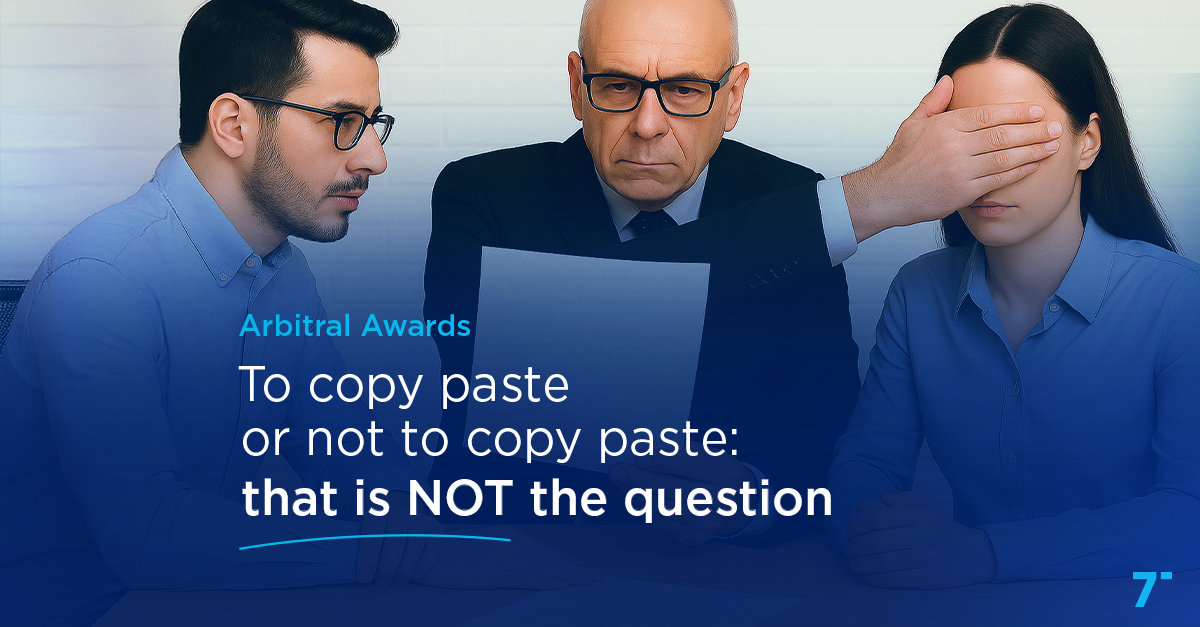Ever since the issuance of the decision of the Singapore Court of Appeal on 8 April 2025 in DJP and others v DJO, upholding the annulment of an ICC Award in a railway dispute issued in 2023 against an Indian public sector company, the headlines of several arbitration-related newsletters[1] featured that the names of the Indian arbitrators behind a “copy pasted award” were revealed.
While you may wonder whether it was an issue of plagiarism of another award or academic work without quoting the authors, or a copy paste of parties’ submissions, the reality is that the Singapore Court of Appeal revealed in fact the dangers of repeated appointments of the same arbitrator in several cases involving one of the parties without the other.
Indeed, after reviewing the reasoning of the Court justifying its annulment of the arbitral award which “copy pasted” nearly 47% of two other awards, it turns out that one of the arbitrators of the challenged award had been involved in two previous related arbitration cases involving one of the parties: he ended up “copy pasting” half of the previous awards he had himself authored (so no plagiarism was at stake), although the other party to the challenged award was not a party in the other arbitrations, and several “copy pasted” arguments and authorities were not discussed by the parties or brought to their attention in the challenged award, affecting the parties’ right to a fair trial and their rights of defense. Moreover, the challenged award even “copy pasted” sections that were not applicable to the case which was subject to other rules of arbitration than the previous ones.
Consequently, the “copy pasted” award was deemed by the Singapore Court of Appeal to reveal a prejudgment by the arbitrator of certain issues, based on information which was not brought to both parties’ attention or discussion, which were all reasons to consider the award as contrary to the integrity of the decision-making process and the right of the parties to a fair trial, and therefore annulled.
This Court of Appeal’s decision brings to light the disadvantages of repeat appointments of the same arbitrator in multiple cases involving one of the parties to the arbitration without the other.
Although it may be very useful – in terms of cost efficiency and time saving – to have the same arbitrator involved in related arbitration cases, the key element in any repeated appointment of the same arbitrator in multiple cases involving one of the parties is to preserve the integrity of every case and the other party’s right to a fair trial which will surely be compromised if there are asymmetries in the information available to each party, particularly because of the confidential nature of the arbitral proceedings.
In summary, there is no blanket prohibition of “copy pasting” in the decision of the Singapore Court of Appeal[2] and its true impact is to pinpoint the best practices when the same arbitrator and only one of the parties are involved in several related arbitration cases, specifically:
- Ensuring that all parties have access to the same information that may be relied upon in the award;
- Avoiding situations that may compromise (or appear to compromise) the arbitrators’ duty to be impartial and unbiased;
- Preserving the parties’ right of defense by ensuring that the parties were invited to discuss all arguments and references used by the arbitral tribunal in the award; and
- A general obligation of transparency of the arbitrators towards all the parties.
[2] In fact, to copy paste the parties’ allegations and arguments in the sections of the award related to the parties’ allegations or the background of the dispute is quite common in arbitral proceedings, and the arbitrators often request a Word version of the parties’ submissions in the interest of time saving.






